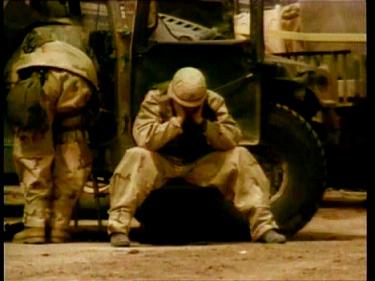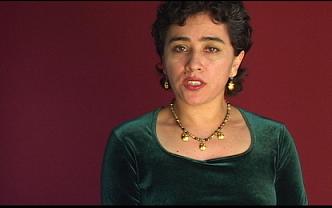Voices in Wartime


In 1993, First Lady Laura Bush organized a poetry symposium honoring the likes of Emily Dickinson, Langston Hughes and Walt Whitman. She invited many poets to attend, but quickly cancelled the event once she realized that poets were going to use the event to air their opposition to the War in Iraq (not realizing the irony of the whole thing). Sam Hamill, poet, and editor of Copper Canyon Press, was one of the people with the idea to use the symposium to air their opinions. He eventually gathered a large number of poets together for a reading in New York. Voices in Wartime looks at this event, as well as many of the poets behind it and gives a brief history of war and poetry.
The last is by far the most compelling aspect of Rick King's (Safe House, Catherine's Grove) film. As wars changed, poetry changed. King begins in ancient times, but really starts to go into detail around World War I, where people fought in trenches. The first war poets were soldiers first, poets second. They wrote about what they saw on the field in a refined, dignified manner. As World War II was bloodier and more violent, changing the tone of their poetry. Poems went from glorifying honor to focusing on the brutal realities of war. King has many voiceovers of poetry, spoken over some brutal war imagery.
When he moves into the present, Voices in Wartime gets a bit shaky. The strongest poems come from people with first hand experience. Paul Mysliwiec fought in Iraq, and General William Lennox is the superintendent of West Point. Lennox in particular lends a huge amount of credibility to the film. The majority of the poets in this film are against the war. Lennox comes off as relatively a political, but does stress the importance of poetry as a tool to help people understand what is happening. This is echoed by all the poets. By writing about the war, they can use their words and associated imagery to bring the war to the public in a different way. King interviews poets from all over the United States, Iraq, and other places like Africa and Nigeria. He interviews established poets and others, like a housewife from Houston, and a young girl from Boston. He takes the time to allow many of the poets to read their work. Things get a bit cheesy when he has them walk and recite poetry, or worse, in Marilyn Nelson's case, has two angles of her simultaneously reciting her poem. The poems also go by a bit fast, so it's hard to sit back and ponder the words.
The last element is one of bias. Voices in Wartime is clearly against the war in Iraq. There's no problem with this, and it's King's right, and fits in well the story about the poets against the war. However, there is a point of view missing when looking at the bigger picture. What about the people who supported the war? Presumably, there are some poets in this camp. Including these voices would provide a larger context in terms of the overall look at the intertwining of poetry and war.
1 hour, 24 minutes, Not Rated but contains some language, probably a PG-13 or R.